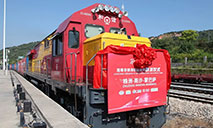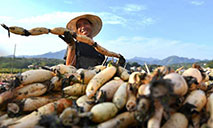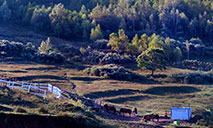Merkel's legacy will continue to shape Germany's political landscape
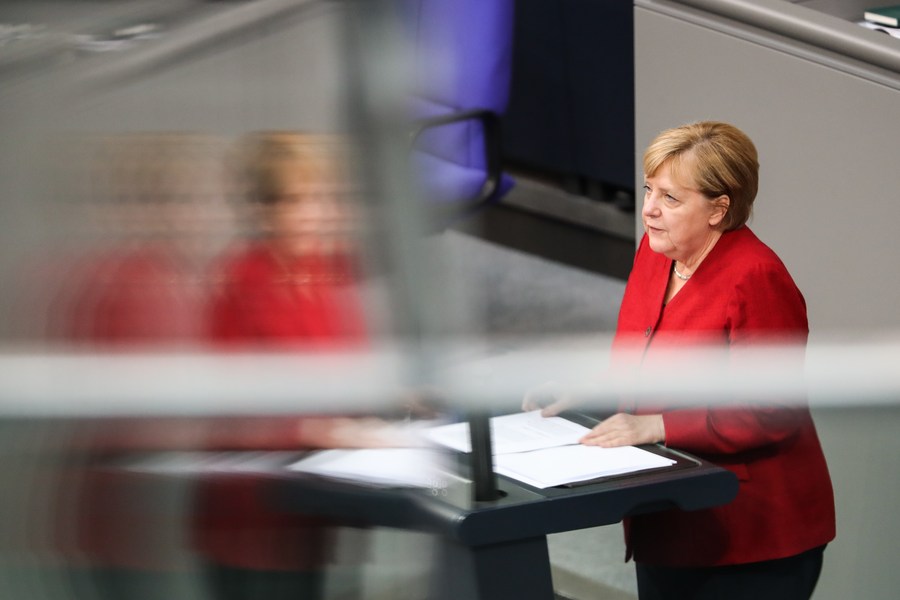
German Chancellor Angela Merkel delivers a speech on situation in Afghanistan in the Bundestag in Berlin, Germany, Aug 25, 2021. (Xinhua/Shan Yuqi)
"In any case, Merkel will be remembered as a successful crisis manager."
BERLIN, Sept. 25 (Xinhua) -- German Chancellor Angela Merkel has navigated the country through many small and large crises and her legacy will likely continue to shape the country's political landscape after the federal election set on Sunday.
Merkel always seemed to find the right words to calm heated tempers, alleviate fears and strengthen cohesion.
During the financial crisis from 2008 to 2009, her first real test as a crisis manager, she prevented a bank run in Germany by credibly ensuring citizens not to worry. "We tell savers that their deposits are safe," Merkel said just at the right moment.
But the financial crisis was more than simply overcome. Overall, the Merkel years were the best economic period that Germany has ever witnessed. Prosperity in Germany has never been greater and no Group of Seven (G7) country grew more strongly in the past 16 years.
For the first time since the 1960s, the government under Merkel also managed to balance Germany's national budget, a concept now commonly described as "black zero."
One sign of the Germans' increased standard of living under Merkel is that individual demand for living space has grown steadily, from an average of 41.2 square meters when Merkel took office in 2005 to 47.4 square meters today.
At the same time, consumer spending on leisure and entertainment increased by 30 percent, and seven million new jobs were created.
"In Germany, we have experienced a golden decade, mainly because as an exporting country we have benefited from growth in China and in the other Asian markets," said Deutsche Bank chief Christian Sewing recently. "This globalization will continue, but supply chains will change."
The financial crisis grew into the euro crisis which lasted from 2010 to 2015, and there was no time for Merkel to catch her breath. Again, she kept her composure and led the way as the head of the most populous and economically strongest country in the European Union (EU).
Merkel prevented the breakup of the zone by imposing austerity measures on financially weak member countries rather than kicking them out of the eurozone.
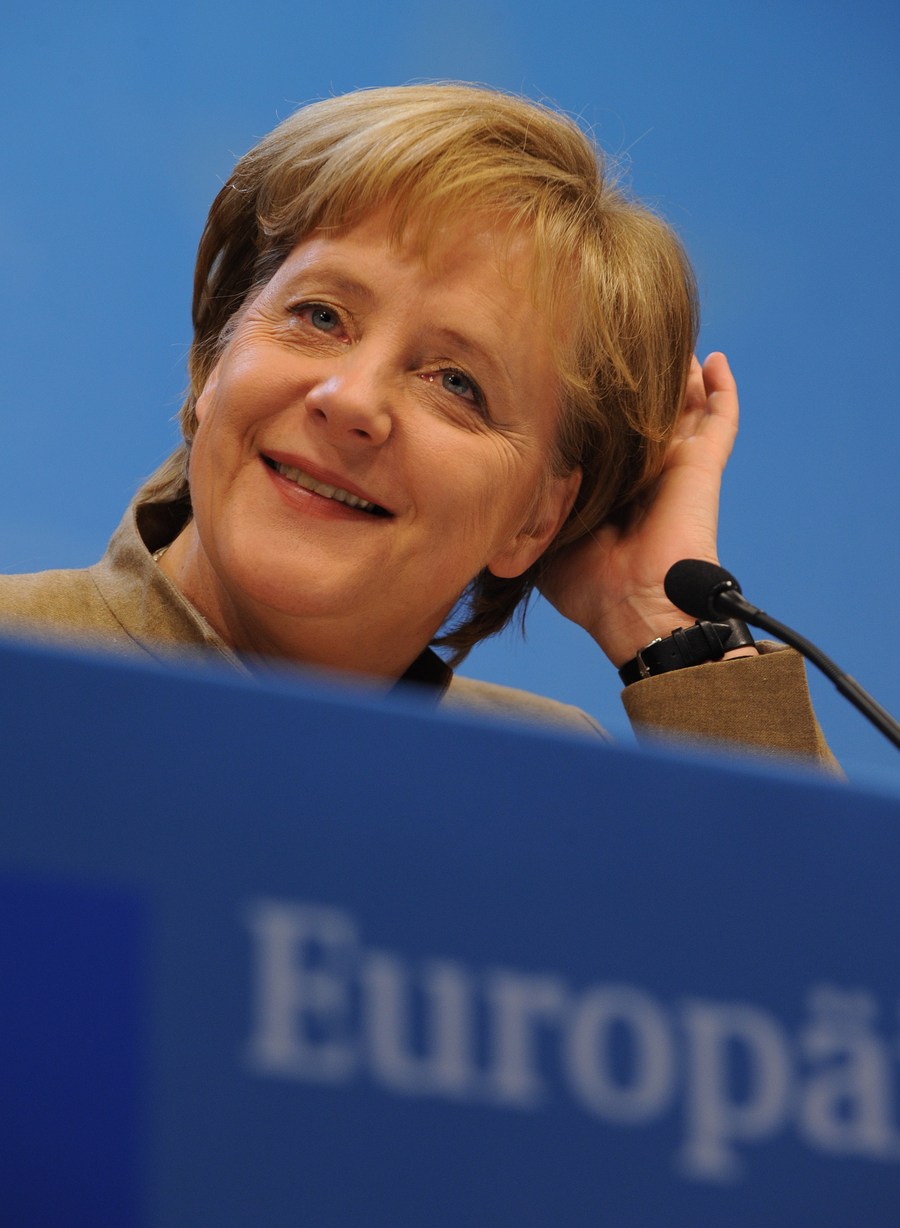
German Chancellor Angela Merkel gestures during a press conference held after the close of the two-day European Union spring summit in Brussels, capital of Belgium, March 20, 2009. (Xinhua/Wu Wei)
But the price for stability in Europe was political turmoil at home. The fact that Merkel described further financial aid for Greece as "alternativlos" (without alternative) was heavily criticized and the Alternative for Germany (AfD) was founded as an anti-euro party.
It has since firmly established itself to the right of Merkel's conservative CDU/CSU and changed the country's political landscape because traditional coalitions no longer obtained the required majority.
With the refugee crisis starting in 2015, the far-right AfD gained further momentum but Merkel met the outcry against streams of war refugees from Syria with stoic calm, strength and her iconic saying "We can do this."
What her political enemies considered a weakness was seen as a strength by international partners as well as most of society.
Guided by humanitarianism, Merkel held firm to Germany's right to asylum and open borders, asserting herself as a key player during the refugee crisis.
In 2015 alone, 890,000 protection seekers were initially registered in Germany and supported by thousands of volunteers, with more than one million asylum applications being filed in the following two years.
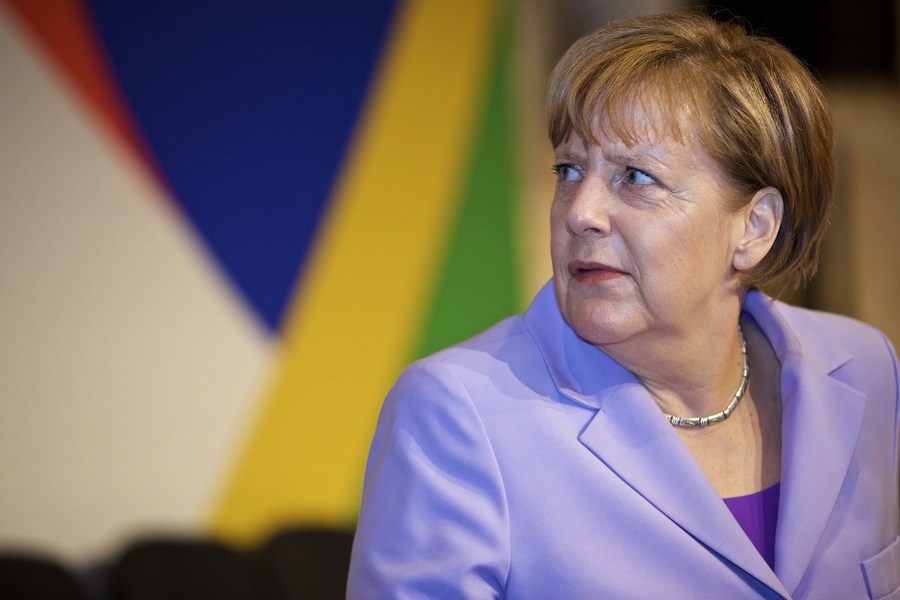
German Chancellor Angela Merkel attends an informal meeting of EU Heads of State or Government on immigration in Valletta, Malta, on Nov. 12, 2015. (Xinhua/Jin Yu)
"Angela Merkel had started out as a chancellor of change, she became a chancellor of preservation," writes journalist Ralph Bollmann in his book about Merkel. She saved the eurozone, but at the same time left behind a "reform backlog" in domestic politics.
Before becoming chancellor, Merkel already served as environment minister in the Kohl government and initially presented herself as "climate chancellor" after she won the election.
Just before the end of her term, Merkel was able to pass a new climate law with stricter binding targets. However, the move was not entirely voluntary as it required a direct court order to ramp up the country's climate targets to be in line with the 1.5-degree goal of the Paris Agreement.
After a devastating tsunami hit Japan in 2011 that led to the nuclear catastrophe in Fukushima, Merkel immediately called for a moratorium for Germany's oldest nuclear power plants.
Although the country had already set a complete exit plan under Chancellor Gerhard Schroeder, Merkel accelerated the process. It was a move that cost billions of euros in compensation payments to utilities and might even be reversed in the current climate crisis when cutting carbon emissions has the highest priority.
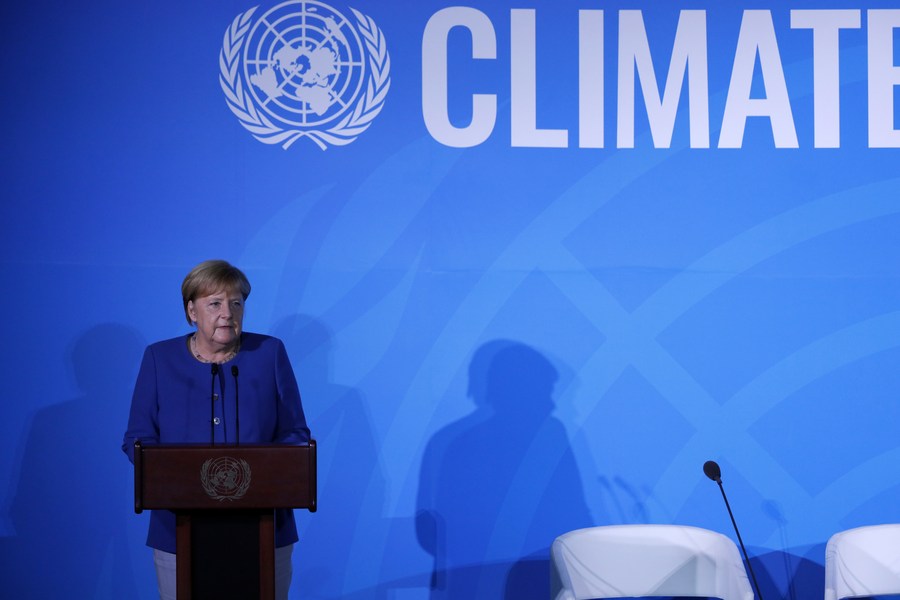
German Chancellor Angela Merkel addresses the UN Climate Action Summit at the UN headquarters in New York, Sept. 23, 2019. (Xinhua/Li Muzi)
"Only in a couple of years will we be able to assess the consequences for energy and climate policy caused by Germany's decision in 2011 to accelerate the phase-out of nuclear energy," political advisor at Infratest dimap Michael Mertes told Xinhua.
"In any case, Merkel will be remembered as a successful crisis manager," he added.
Although the COVID-19 crisis is still ongoing and might well go down in history books as the worst crisis in the last decades, Merkel had already announced not to run for chancellor again and almost seemed distant, leaving most of the daily crisis management to her Health Minister Jens Spahn and the country's authorities.
Nonetheless, Merkel certainly helped Germans to keep a cool head and at no point was there such a thing as panic during the entire pandemic.

German Chancellor Angela Merkel prepares to leave after a routine press conference in Berlin, capital of Germany, Aug. 28, 2020. (Xinhua/Ren Ke)
Photos
Related Stories
- Germany needs to work more closely with China in post-Merkel era
- Traditional pumpkin festival held in Lohmar, Germany
- Xi, Merkel talk over phone on ties, multilateral cooperation
- Second birthday celebrated for giant panda twins at Berlin Zoo in Germany
- Skateboarding a guideline for life, says Germany's youngest Tokyo athlete
Copyright © 2021 People's Daily Online. All Rights Reserved.







